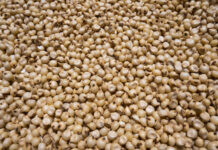Although the supply of food and food products in India has not been disrupted in the past 19 months of the pandemic, the industry has. Many growth plans and new projects for food processing were delayed even as the overall consumption totally tilted to in-home consumption. The disruption of the hospitality and travel industry has had catastrophic consequences on the lives and livelihoods of countless food businesses, restaurants, hotels, and their owners and employees. The pandemic has also disrupted the growth of significant food retailers, leading to closures and rocky attempts at consolidation in order to save hard-won assets. On top of the Covid-19 pandemic and its consequent lockdowns, there has been the continuing farmers’ unrest and agitation laying siege at the gates of the national capital in opposition to the government’s attempts at restructuring agricultural production, logistics, and sales. The changes sought by the government have been abrupt and heavy-handed, and at their worst, a misdirected reform that neither clarifies the problem, nor the consequences of its undiscussed and authoritarian legislation or solution. While reforms are needed in agricultural methods, cropping patterns, and farm-to-market economics, the long-practiced method of minimum support price has become a sticking point even after the government has seemingly conceded this point.
On plant-based protein, veganism, culture and the ethics of animal-based meat
Food and ideas and taboos on certain kinds of foods have always been the legacy hallmarks of every religion and culture – no matter that they may have been derived from the best health practices of another age. And although 71% of Indians currently self-identify as meat-eaters, there is often some guilt attached leading to inhibitions such as not eating meat at home or on certain auspicious days. Denial and fasting are of course another dimension of most religions just as feasts are. Thus both veganism and the popularity of plant-based proteins and alternatively produced meat and poultry are catching on. Animal-based proteins are seen not only as an inefficient use of land and agricultural resources but also unlikely to meet the ever-increasing demand for them as disposal incomes rise in certain parts of the world such as Asia.
The alternative protein markets rely on three approaches – plant-based products including the mimicking of meat flavors and textures, fermentation of products using micro-organisms, and lab-cultivated meat using animal cell cultures. There is extensive research and investment in all three approaches and in creating new ingredients to improve the mouthfeel, taste, and functionality of alternative meats – all ultimately decisive in their adoption.
On 23 September 2021, Mukund Padmanabham wrote a column in The Indian Express that moved the discussion from just plant-based proteins to veganism. In the column ‘Can we ignore food ethics in a discussion about food diversity and politics?’ Padmanabham takes up the ethics of ‘speciesism’ as discussed by the Australian philosopher Peter Singer.
He writes, “Although there are some activists who have given veganism a bad name, very few appreciate that it could also be arrived at through deliberative philosophical inquiry into the ethics of food, its production, and consumption. My so-called ‘conversion’ occurred while reading and re-reading Peter Singer, the brilliant (and controversial) Australian philosopher now based at Princeton, as preparation for a couple of bioethics lectures to university students.
“Vegetarians like to think they are more humane about their dietary choices, but they rarely consider what goes into the making of dairy products. What it usually means is a long and quick succession of pregnancies for cows and buffalos, their calves separated not so long after birth, and their milk diverted for human consumption. If the calf is female, then it is raised for another succession of economically lucrative pregnancies. If it’s a male, then it is usually quietly sent to the abattoir.
“That the many millions who worship cows in this country choose to be either unaware or unfeeling about how they suffer on account of milk production is reflective of a larger truth. When it comes to thinking about how our food is produced, we would rather not know or deal with our cognitive dissonances by suppressing what we do know. Allowing oneself to think critically and candidly about food may demand making challenging dietary changes.”
IndiFoodBev — authentic, impactful and influential
An English-language food and beverage processing and packaging industry B2B platform in print and web, IndiFoodBev is in its third year of publication. It is said that the Indian food and beverage industries represent approximately US$ 900 billion in revenues which implies more than 20% of the country’s GDP. Eliminating the wastage on the farmside can help to deliver more protein to a higher number of the population apart from generating sizable exports. The savings in soil, seeds, water, fertilizer, energy and ultimately food and nutrition could be the most immense contribution that country is poised to make to the moderation of climate change.
To improve your marketing and grow sales to the food and beverage processing and packaging industry, talk to us. Our research and consulting company IppStar [www.ippstar.org] can assess your potential and addressable markets in light of the competition. We can discuss marketing, communication, and sales strategies for market entry and growth.
Suppliers and service providers with a strategy and budget for targeted marketing can discuss using our hybrid print, web, video, and social media channels to create brand recognition linked to market relevance. Our technical writers are ready to meet you and your customers for content.
The second largest producer of fruit and vegetables in the world is continuously expanding processing capacities and delivery systems with appropriate innovative technologies. We cover product and consumer trends, nutrition, processing, research, equipment and packaging from farm to thali. Get our 2025 media kit and recalibrate your role in this dynamic market. Enhance your visibility and relevance to existing markets and turn potential customers into conversations. Ask for a sample copy of our bi-monthly in print or our weekly IndiFoodBev eZine each Wednesday.
For editorial info@ippgroup.in — for advertisement ads1@ippgroup.in and for subscriptions subscription@ippgroup.in
Naresh Khanna – 10 February 2025
Subscribe Now











